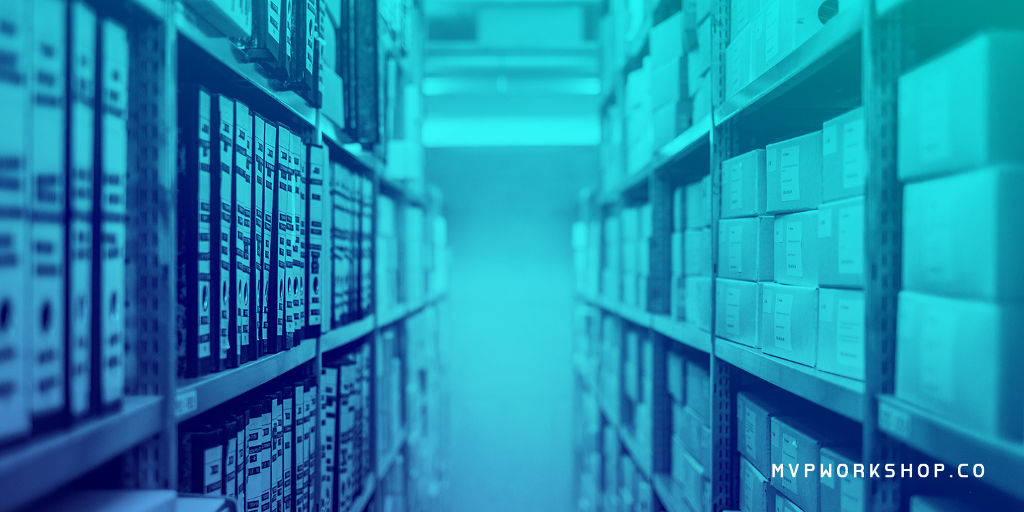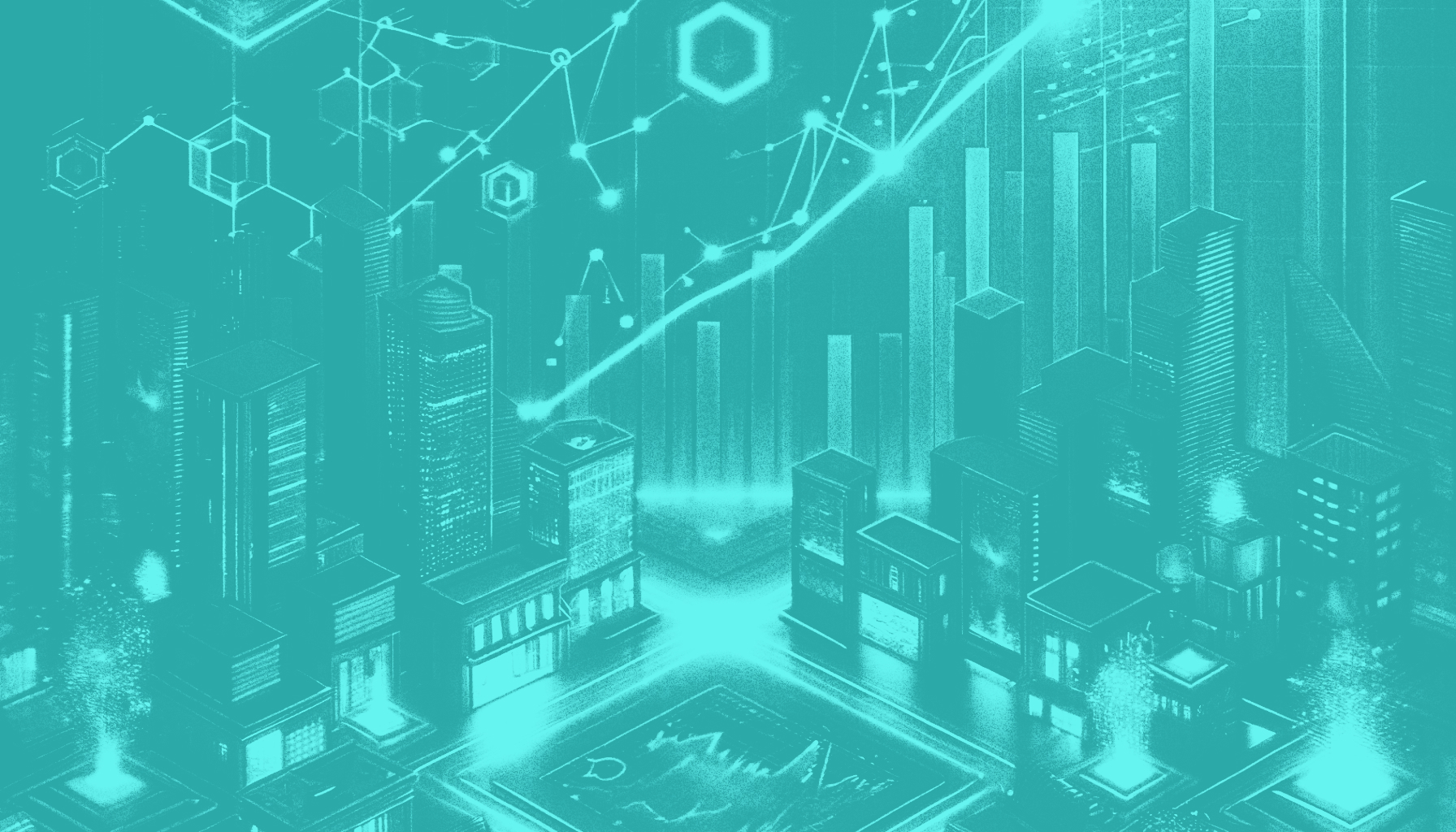To understand the complexity of the supply chain and its potential technological improvement we have to know the definition of the supply chain. It is a system of activities, people, organizations, information, and finally resources involved in moving a service or a product from suppliers to customers.
So, if we consider all the stakeholders included in this process it is not hard to see how trust is an important part of the equation.
The most common problem that the companies are faced in the supply chain management is transparency. Blockchain ensures for the recorded transactions to be immutable, and builds trust between parties, who don’t have to trust each other but the system.

Benefits of the blockchain usage in the supply chain
Blockchain technology is currently making an impact on financial services, healthcare, publishing, music, the pharmaceutical industry, food industry, the industry of luxury goods, transport, real estate, and many others. Cloud IoT platforms built by Microsoft, Google, Amazon, IBM etc. provide available data for AI and ML, so the new world for exploration is opened.
Companies from different branches all over the world are asking the same question:
— How to build a blockchain system that will be reliable, scalable, inside of an evolved ecosystem, in coordination with the governance regulative, and finally profitable for the specific company.
One of the main benefits of blockchain in a supply chain is that it eases the share of information between companies, manufacturers, cooperatives, and even customers. It decreases paperwork. Also, the blockchain technology reduces delays, disputes, and it makes it possible to track product in real time — that way we can see the state of the product and the exact real-time location.
There is a valuable piece of information about the product/service available at any time. Especially beneficial characteristics of blockchain are scalability that it offers, higher security, reduced or eliminated frauds, minimized courier costs, faster identification of problems, increased trust, perfect fluidity. Also, there’s a possibility to build a blockchain in a private manner, so only allowed parties can have access to data.

Although, there are those who will think that problems are already solved in the supply chain process, however, the numbers show different — 600 billion dollars of frauds happening in trade every year — from this we see that we need the blockchain technology in order to improve the supply chain process. Some of the most successful companies in the industry are already working on this kind of improvement — Walmart, Unilever, Nestle, and many others.
The general idea is to connect farmers, retailers, suppliers, and ultimately customers in one single decentralized system since the trust is currently lacking due to the number of parties included in the market.
Smart contracts and the supply chain
Among other things, blockchain improves supply chain management through the implementation of smart contracts. It means that the goods are payable immediately upon acquiring receipt, a proof of delivery activates an automatic digital payment, with no analog gap between the customer and supplier.
Also, Maersk and IBM are launching TradeLens — a blockchain supply chain solution as a result of their joint venture. This project will commercialize two strengths: a shipping information pipeline and paperless trade. It means full visibility through the supply chain process, and digitalized and automatized paperwork. Various partners have been a part of the pilot program of the platform, companies like DuPont, Dow, Tetra Pak, Port Houston, the Customs Administration of the Netherlands, and U.S. Customs and Border Protection. According to IBM and Maersk, future partners will include General Motors and Procter & Gamble, among others.
There are already a few significant supply chain management based projects such as — Waltonchain, Ambrosus, Modum, VeChain, WaBi, and Origin Trail. They all have the same goal mapped — to improve and automatize the supply chain process in a variety of different industries.
Pharmaceutical industry
The importance of this new technology usage and the ways it can change the supply chain in the pharmaceutical industry can be seen through the fact that the European Union and the United States made a decision to build a blockchain solution to anonymously transfer the serial numbers and the identities of the pharmaceutical numbers in the supply chain system. It would optimize the supply chain, and it would make a unified identification of medicines.
Blockchain can improve the supply chain in the pharmaceutical industry in many ways. Some of them are through controlling the temperature of the medicines or eliminating the frauds. The size of the global drug market is near $200 billion. Eliminating the frauds in such a big market is a big deal.
Blockchain makes it possible to trace drugs from manufacturer to the end customer, so it’s possible to identify where the supply chain is broken. It minimizes the losses and maximizes the safety of customers.
For instance, controlling the temperature of medicines inside a transportation truck implies blockchain technology programmed in, that will trigger alert when the temperature gets too high or low (this is also applicable for biological material, food or anything that needs to be stored and watched under certain temperature).
Luxury goods
The effects of blockchain on the luxury industry can be tracked through the clothing, diamond, and gold market. For instance, LV — Louis Vuitton is embedding sensors in all of their leather goods, so that their product can now have a digital identity. That way, the product is saved from plagiarism and top quality is guaranteed.
In diamond industry, blockchain technology is applicable from mines where they measure a whole bunch of different characteristics and then track them through the supply chain to the end customer making sure that an undamaged product with all guaranteed characteristics is delivered.
The company Everledger developed a blockchain solution using the Hyperledger platform where every diamond is registered as if it had a fingerprint, and more than 1.6 million diamonds reside on that blockchain.
A significant use case is the Chronicled company that registers the serial number of a gold bar and encrypts a microchip and tamper-proof sticker on the packaging that is destroyed when you peel it off. The packaging can be scanned with a mobile phone and if anything was tampered with, you would get the alert sign on your phone. This event is also registered in the blockchain.
Publishing and music industry
Is it needed to say how much money is circling in these two industries? The obvious problems in them are the payment and plagiarism. How to monetize artwork and not to be copied is the main concern of creators of content. On the other hand, consumers have interests such as the quality of a product (in case of music, it can be the quality of sound), or the possibility of partial consumerism (in case of publishing, you might want to read only a part of some book).
With the blockchain technology, it is possible to automate the payment for the whole product or just a part of it. There’s a direct connection between the creators and customers, or should I say artists and audience. That way you can monitor reactions of the audience before you finish your artwork and you can get feedback before it’s too late — feedback with suggestions for corrections from people who could actively participate in the creation, and they could also earn from that if the suggestion is adopted. How awesome is that?
These characteristics were well used by a couple of awesome folks to build Scriptarnica, check it out!

So basically, the blockchain technology in these industries would shorten the supply chain, leave out the middleman, and provide additional possibilities of cooperation between creators and audience, without endangering the safety of the product or its quality.
A startup that’s also working in this field is Context Labs, but they are also working on applying the blockchain technology to environmental data, so there will be no lies about pollution anymore, folks.
The size of the market
Paul Brody’s statement should say enough about how big the market is:
“Nearly all of the world’s leading companies run computerized enterprise resource planning (ERP) and supply chain management software.”
I have to say that the benefits of the blockchain technology in the supply chain management reminded me a bit of the benefit of the CPFR system, but somehow maybe ran globally and much more efficiently with the new technology in hands.
The biggest mistake to me seems to compare new technology with the old ways of working in the supply chain because it could make an unrealistic picture in cost-benefit analyses. So if you want to see what would blockchain potentially bring in the supply chain, first see how modern the ERP system that your company uses is, in order to not underestimate it. Supply chain process is not some inefficient outdated system like you can read about in some articles. Serious companies use serious ERP systems. But yes, the blockchain technology is giving us food for thought and field of research.
Frost & Sullivan predicts that the blockchain technology will have a 37% penetration rate in the automotive industry by 2025. And EY estimates that the blockchain technology will be all over the market covering financing, ownership, insurance, and many others that will be tracked and managed all together.
Supply chain does seem like custom-tailored for blockchain tech. The number of practical examples in the upper text shows it.
However, the supply chain is the crucial part of almost every industry, so it’s not an area that should be compared with typical individual industries, and it is not surprising that it has so many examples of the applicability of blockchain technology. If something new is happening on the market, the supply chain will feel it first.
This article is part of our blockchain awareness posts where we try to help newcomers and people interested in blockchain use cases enter the space more easily. Follow us and subscribe for more upcoming articles such as this one, and feel free to join the conversation on Twitter and LinkedIn.
For free business consultation about how blockchain can impact and change your business model, or anything else related to the technology — get in touch with us.
Supply Chain as an Ideal Business Use Case for Blockchain Technology was originally published in MVP Workshop on Medium, where people are continuing the conversation by highlighting and responding to this story.



